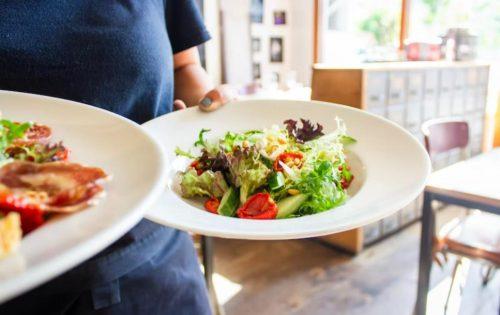Post Contents
If you’re passionate about food and enjoy cooking, starting a small food business from home is a great way to earn some extra income. There are a few things you need to keep in mind when starting a home-based food business, such as obtaining proper licenses and permits, having adequate kitchen space, and following food safety guidelines.
How to Start a Small Food Business at Home?
To get started, first research the requirements for starting a food business in your state or locality. You’ll need to obtain a business license, as well as any permits required for selling food products. You’ll also need to make sure you have enough kitchen space to prepare your products and that your kitchen meets all local health department guidelines.

Once you have everything in place, it’s time to start promoting your business. Create a website or social media pages where you can showcase your products and let people know how they can purchase them. You can also participate in local events or fairs to sell your foods. By following these tips, you can successfully start a small food business from home.
Investing in the right equipment for your catering business
Starting a catering business can be a great way to earn extra income or even turn it into a full-time job. But before you get started, you need to make sure you have the right equipment for the job.
Investing in quality equipment will help you create delicious food that your customers will love. It will also help you work more efficiently, which can save you time and money in the long run.

Here are some essential pieces of catering equipment you’ll need:
- A good quality commercial oven – This is one of the most important pieces of equipment for any catering business. A good oven will help you cook food quickly and evenly, so it’s essential for creating perfect dishes every time.
- A professional grade mixer – A quality mixer is crucial for making doughs and sauces, as well as mixing ingredients together for recipes. Look for a mixer that’s durable and easy to use so you can make quick work of any recipe.
- Commercial grade refrigeration – You’ll need a reliable fridge to store all of your food ingredients and leftovers. Choose a model that’s big enough to accommodate all of your needs, but not so large that it takes up too much space in your kitchen.
- Quality serving dishes and utensils – Invest money in some quality serving dishes and utensils so you can present your food in the best possible way. Beautiful plates and bowls will make your food look even more appetizing , and quality utensils will help you serve it perfectly every time.
- A food processor – A food processor can be a lifesaver when you’re catering large events. It will make quick work of chopping and pureeing ingredients, so you can spend more time focusing on other aspects of your business.
Types of food businesses
There are many types of food businesses, from small home-based businesses to large commercial operations. The most important thing is to find the right fit for your skills, interests and goals.
One option is a home-based business, which can be a great way to get started with limited capital and space requirements. You can produce products in your kitchen or garage, and sell them online or at local farmers markets.

Another option is a mobile food business, such as a food truck or catering company. This type of business requires more start-up capital and logistical planning, but can be very rewarding.
For those with culinary training, a restaurant may be the best option. This is a complex business with high overhead costs, but can be very profitable if done well.
Finally, there are franchise opportunities available in the food industry. These tend to be relatively low-cost and provide support and brand recognition from day one. However, you will need to adhere to strict guidelines set by the franchisor.
What are the legal requirements?
There are a few things to keep in mind when starting a small food business at home. First, you will need to obtain a business license from your local municipality. Secondly, you will need to comply with any zoning regulations in your area. Lastly, you will need to adhere to any food safety regulations that are in place in your jurisdiction. Failure to do so could result in your business being shut down.
Advertising and marketing your food project
There are a few things to keep in mind when marketing and advertising your food business. First, you want to make sure your target audience is clear. Who are you selling to? What are their needs and wants? Once you know who your target market is, you can start thinking about how to reach them.
There are a variety of ways to market your food business, and it’s important to find the right mix for you. Traditional methods like print ads, flyers, and word-of-mouth can be effective, but don’t forget about online marketing as well. Social media, email marketing, and even SEO can help you reach more people and connect with potential customers.
The most important thing is to be creative and have fun with it! Marketing should be an extension of your brand, so make sure it reflects your personality and style. With a little effort and some creativity, you can get the word out there about your amazing food business.
conclusion
When it comes to starting a small food business at home, there are a few key things to keep in mind. First, you’ll need to make sure you have the proper permits, business insurance and licenses in place. Next, you will need to create a business plan and determine your start-up costs. Finally, you’ll need to find the right location for your business and get the word out about your new venture.
With careful planning and execution, starting a small food business at home can be a great way to achieve your entrepreneurial dreams and make money in millions.


